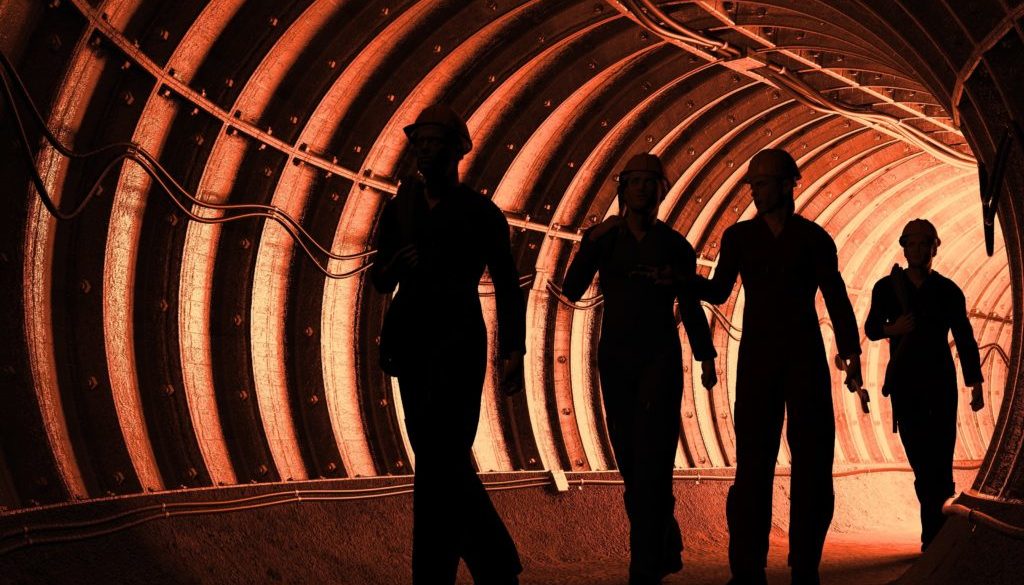Workers Memorial Day Highlights Secretary of Labor Scalia’s Failure to Protect Workers During the Coronavirus Crisis
By Celine McNicholas, Economic Policy Institute
April 28 is Workers Memorial Day, a day observed around the world to remember those workers killed or injured on the job and to fight for strong safety and health protections for all workers. This fight has never been more critical. The COVID-19 pandemic has revealed a reality many workers have long confronted—workers are routinely forced to work in unsafe conditions, risking their health and safety for a job.
In 2018, the most recent annual data available, more than 5,000 U.S. workers died on the job. Prior to the pandemic, an average of 14 workers died each day of workplace injuries. This does not include workers who died from occupational diseases, estimated to be nearly 100,000 each year. In total, 275 workers died each day in 2018 as the result of workplace injuries and illnesses, and more than 3.5 million workers were injured at work in 2018.
As staggering as these data are, they understate the problem. Widespread underreporting as well as limitations in the injury and illness reporting system mean that many worker injuries remain uncounted. Worker health and safety experts estimate that more than seven million workers suffer workplace injuries and illnesses each year.
The coronavirus pandemic lays bare the longstanding failure of existing U.S. health and safety laws to protect workers. Weak worker protections cost thousands of workers’ lives each year and are now leaving essential workers unprotected on the job during this crisis. Over the last few months alone, the Occupational Safety and Health Administration (OSHA) has received thousands of complaints from workers concerned about workplace exposure to COVID-19 and a lack of safeguards on the job.
While policymakers have been quick to highlight the sacrifices and heroic efforts of essential workers at this moment, they have done little to change the system to ensure that these workers are protected on the job. As a result, workers continue to be required to work without protective gear. Sick workers continue to lack access to paid leave. And, when workers try and speak up for themselves and each other, they are fired. Workers are dying as a result.
Instead of looking for ways to address weak health and safety protections for workers in this crisis, Secretary of Labor Eugene Scalia is taking this opportunity to weaken protections for millions of workers. He issued a ruleexempting certain firms from being required to providing paid sick and family medical leave to workers, which could rob nine million health care workersand 4.4 million first responders from paid leave protections. Further, Scalia has refused to require employers to follow Centers for Disease Control (CDC) guidance for public businesses.
Scalia has even resisted calls to issue safety requirements to protect health care workers. The CDC recently issued a report finding that between February 12 and April 9 over 9,200 health care workers reported coronavirus infections. Of these cases, 73% were women. 27 workers had died of COVID-19 as of April 9.
A growing number of other essential workers are becoming infected as well. As of April 12, 41 grocery workers had died. The United Food and Commercial Workers International Union reported that more than 1,500 workers had tested positive for coronavirus and that 3,000 of its members were not working because they were ill or quarantined. The impact on the nation’s three million grocery workers will likely be far greater. And, given his unwillingness to exercise his power to protect workers, much of the blame for that lies with Scalia.
We know that workers are getting sick and dying as a result of workplace exposure to COVID-19. However, we may never know exactly how many, because Scalia has issued guidance on employer recordkeeping during the pandemic that advises certain employers that they are not required to investigate or record workplace-related coronavirus cases. Not only does this guidance make workers less safe at this critical time, it shamefully denies any public record of worker illness and death as a result of workplace exposure during the COVID-19 pandemic.
These essential workers deserve a Secretary of Labor who will use the post to ensure them a safe workplace, as opposed to expending resources to limit unemployed workers’ access to unemployment insurance benefits. Scalia has been laser-focused on this work stating that “we want workers to work, not to become dependent on the unemployment system”—as if the real problem we face today is whether unemployment insurance might disincentivize work, not a global pandemic that has led to the loss of millions of jobs and millions more being forced to risk their lives at work. It is Scalia’s failure to focus on worker health and safety at this critical moment that is forcing frontline workers to walk off their job or risk their life.
On Workers Memorial Day, as we reflect on workers killed or injured on the job, we must hold Scalia accountable for his failure to respond to the crisis affecting the nation’s essential workers. If he continues to be unwilling to protect these workers, he must be removed. No worker should be forced to risk their life for their job while waiting for Scalia to do his.

